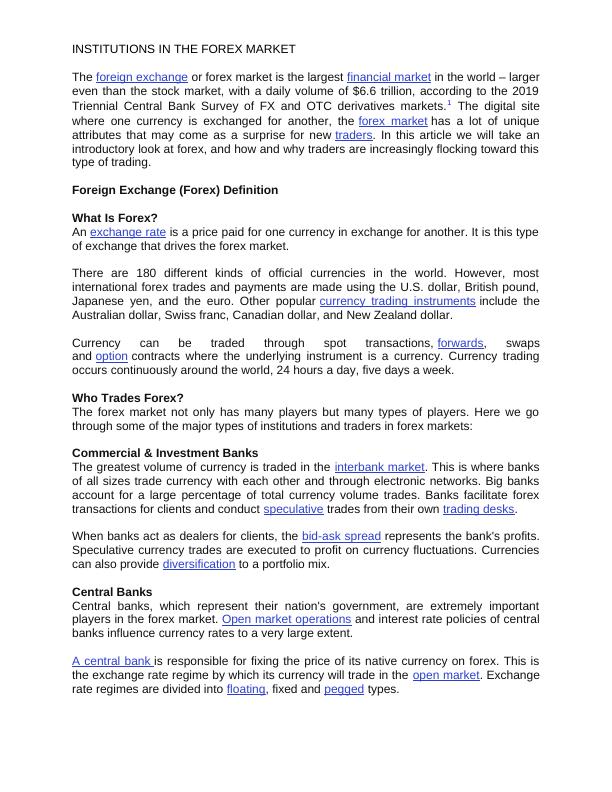ARTICLE : INSTITUTIONS IN THE FOREX MARKET
Added on 2022-09-29
3 Pages1282 Words24 Views
End of preview
Want to access all the pages? Upload your documents or become a member.
Key Activities of Forward Exchange Market and Usefulness for International Traders
|6
|1337
|116
Benefits and Risks of Foreign Exchange Market and Regulatory Entities
|6
|706
|276
Currency Trading: Positive Role in Global Economy
|7
|1205
|246
Foreign Exchange Market: Trends, Role of Central Banks & Analysis of Exchange Rates
|14
|3362
|286
International Finance
|7
|1359
|205
Assignment on Spot Market(All About)
|6
|1953
|25

